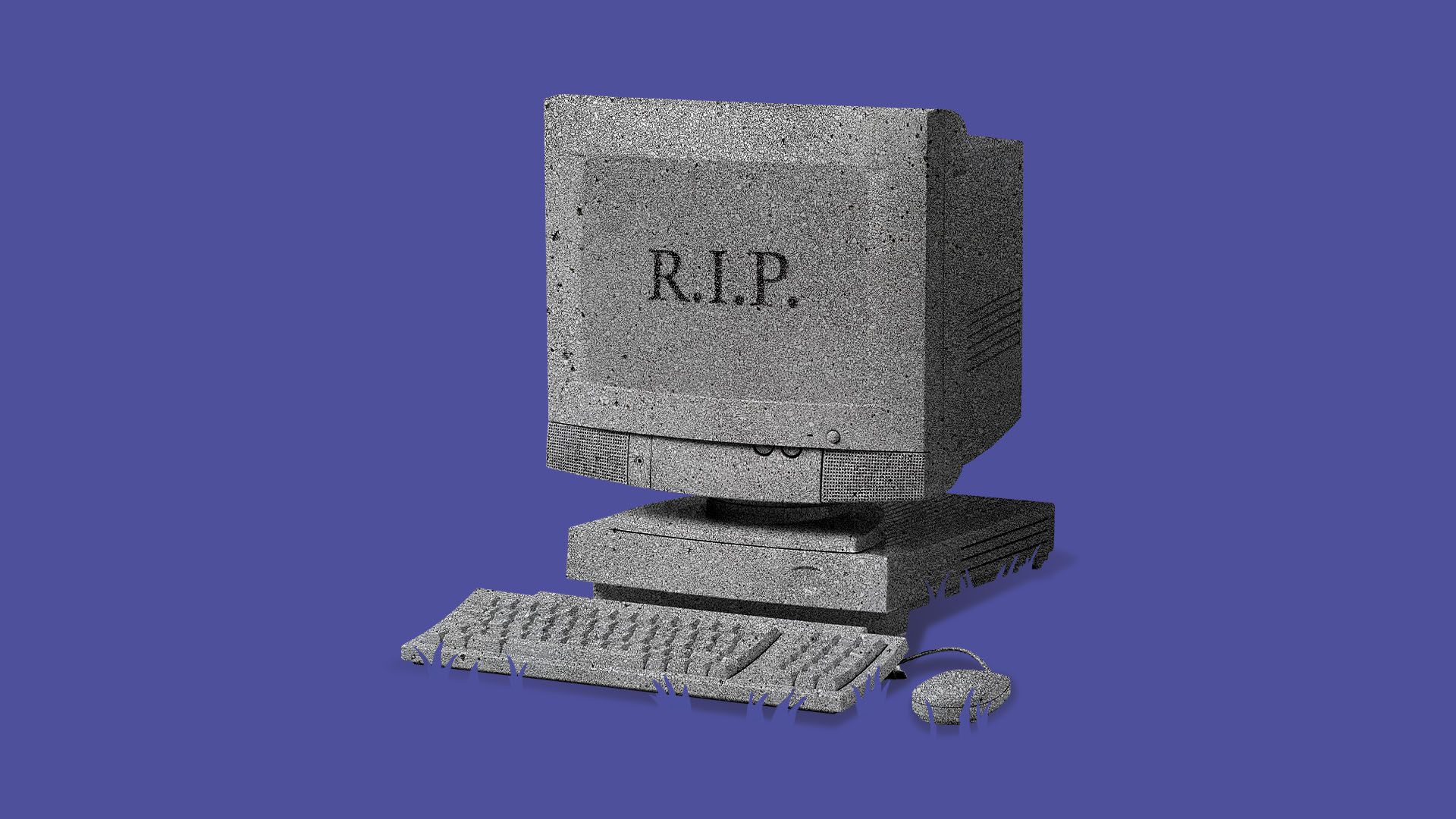How tech platforms handle a user's death
Add Axios as your preferred source to
see more of our stories on Google.

Illustration: Sarah Grillo/Axios
Online platforms built for the living increasingly have to confront what to do when one of their users dies, leaving an account behind.
Details: Each major platform is different, but all have procedures in place should a user die.
- Facebook will “memorialize” a deceased user’s account — turning it essentially into a remembrance page — at the request of family members or friends. (Family members can also request to delete the account entirely.)
- Instagram, which Facebook owns, will also lock in the contents of someone’s account when they die.
- Twitter will deactivate a deceased user’s account in collaboration with a “person authorized to act on behalf of the estate, or with a verified immediate family member.”
- Google will work to secure a user’s account after they die. “We can work with immediate family members and representatives to close the account of a deceased person where appropriate,” the company says. “In certain circumstances we may provide content from a deceased user's account.”
Several platforms encourage users to plan ahead for their own death, often by designating an individual to handle their account. Facebook users can also tell the service to delete their account when they die.
The big picture: Social networks have repeatedly grappled with how to handle this question, developing their policies over the years — and facing criticism along the way.
- Last year, a writer for Mashable noted that effectively anyone could memorialize a Facebook account, based on the way the system worked at the time.
Facebook’s Sheryl Sandberg announced earlier this year that the site was now “only allowing friends and family members to request to have an account memorialized.”
- She also said the company uses artificial intelligence to keep content from non-memorialized accounts belonging to deceased users out of other users' feeds.
- A Facebook spokesperson wouldn't specify how the platform identifies whether someone has died, but said that there "are any number of signals we look for to indicate a person may be deceased."
Go deeper:
